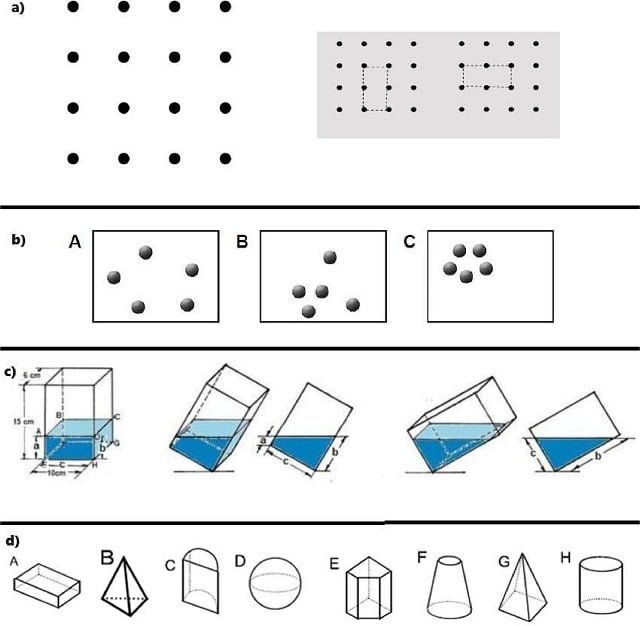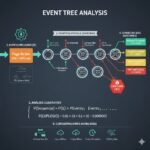
Music and Math: Two Apparently Separate Worlds, Right? But what if your childhood piano lessons really did help you ace those tricky math exams? Recent research suggests there might be a connection between musical training and mathematical ability.
Researchers at the University of Murcia (Spain) recently studied the link between musical training and math skills, focusing particularly on mathematical creativity: the ability to think innovatively and tackle problems in new and innovative ways. They validated the positive effects of musical training on math performance and explored the role of mathematical creativity in this relationship, addressing a research gap.
The Link Between Music and Math
While some believe music and math occupy separate realms, previous research suggests a positive association between musical instruction and overall math performance. However, the impact on creativity, a crucial skill for solving problems in new ways, remained unexplored.
No prior study had examined the potential role of mathematical creativity in the connection between music and math. While it is commonly assumed that music students are more creative, research had not explored whether this creativity translates to other domains like math. This could be a missing piece in the puzzle of how musical training affects math performance.
Do, Re, Mi… Higher Math Scores?
The big question: does music really translate to better math scores? The answer, like a good melody, has its complexities.
Many studies suggest a positive link between music lessons and better math performance. However, some studies have not found a clear connection.
Why the Mixed Notes?
This lack of consensus could be due to several factors.
Studies often involve students of different ages (from young children to teenagers) and with varying lengths and quality of musical training. Brief intervention-style programs might not have the same impact as high-quality, long-term musical instruction. Additionally, these studies do not always control for factors such as socioeconomic status, which can influence academic performance.
Music in Math: Study Design and Findings
Researchers recruited 220 third-year secondary students, with 62 receiving additional musical training at a conservatory. The students participated in two assessments:
- Mathematical Creativity Test: Measured their ability to think innovatively and tackle math problems with unique solutions.
- Academic Performance Test in Mathematics: Measured their understanding of basic math concepts.
The results revealed some interesting insights:
- Mathematical Creatives Are Rare Gems: Only 5.9% of participants scored high in mathematical creativity, highlighting their relative rarity.
- A Beautiful Harmony: A moderate positive correlation (0.504) was found between mathematical creativity and academic performance. In simpler terms, students who performed well in math were also more likely to exhibit creative thinking within the subject.
- The Musical Effect: Here’s the exciting part! Students with musical training showed significantly higher levels of mathematical creativity, even considering their general math performance. This suggests that music education might go beyond improving math scores and actually enhance creative thinking within the math domain.
What Does This Mean for Educators?
These findings have interesting implications for educators as they offer compelling evidence that musical training can foster mathematical creativity.
Imagine nurturing a generation of students who can solve equations and approach them creatively, leading to innovative solutions. This is important because creative problem-solving is crucial for success in various fields, including science, engineering, and even computer programming.
Conclusion: A Symphony of Learning
While the study does not definitively prove that musical training causes greater mathematical creativity, it strongly suggests a connection. For parents and educators, this highlights the potential benefits of incorporating music education into a comprehensive curriculum, not just for artistic development but also for unlocking hidden potential in the realm of math.
Key Takeaways:
- Musical Training Boosts Mathematical Creativity: Students with conservatory musical training scored higher on both math performance and creativity tests compared to those without such training. This suggests that long-term musical instruction, especially playing instruments, can enhance creative thinking in math.
- Benefits of Music Education Extend Beyond Music: These findings highlight the importance of including music education in school programs, not just for artistic development but also for its potential to enhance skills in other areas like math. In today’s world, where creativity and problem-solving are valued, music education can play a significant role in fostering these skills across disciplines.
- Integrating Music into Math Learning: The study suggests that incorporating musical elements into the math curriculum could be beneficial. This might involve activities that combine mathematical concepts with musical expression, encouraging students to be more imaginative and exploratory in their learning process.
- The Need to Foster Mathematical Creativity: A significant number of students in the study showed low levels of mathematical creativity. This emphasizes the need for educators to develop tools and strategies to cultivate creative thinking skills in math education.
- Identifying Hidden Mathematical Talent: The study found that some students with high mathematical creativity had average academic performance. This suggests that traditional assessments might overlook truly talented individuals. Creativity tests could be a valuable tool for educators to identify students with high mathematical potential, even if their academic performance does not reflect it.
- More Research Needed: The study acknowledges limitations, such as its causal-comparative design and the specific creativity test used. Future research could include longitudinal studies and broader creativity assessments to strengthen the understanding of the link between music, creativity, and math performance.
Contact
Jorge García-García
Department of Didactic of Mathematics. University of Murcia
Plaza Santoña 1, 7C, 30006 Murcia, Spain.
Email: jgg10@um.es
Reference (open access)
García-García, J., Nortes Martínez-Artero, M. R., & Olivares-Carrillo, P. (2024). Exploring the influence of musical training on mathematical creativity. Thinking Skills and Creativity, 52, 101498. https://doi.org/10.1016/j.tsc.2024.101498
Editor and founder of “Innovar o Morir” (‘Innovate or Die’). Milthon holds a Master’s degree in Science and Innovation Management from the Polytechnic University of Valencia, with postgraduate diplomas in Business Innovation (UPV) and Market-Oriented Innovation Management (UPCH-Universitat Leipzig). He has practical experience in innovation management, having led the Fisheries Innovation Unit of the National Program for Innovation in Fisheries and Aquaculture (PNIPA) and worked as a consultant on open innovation diagnostics and technology watch. He firmly believes in the power of innovation and creativity as drivers of change and development.





